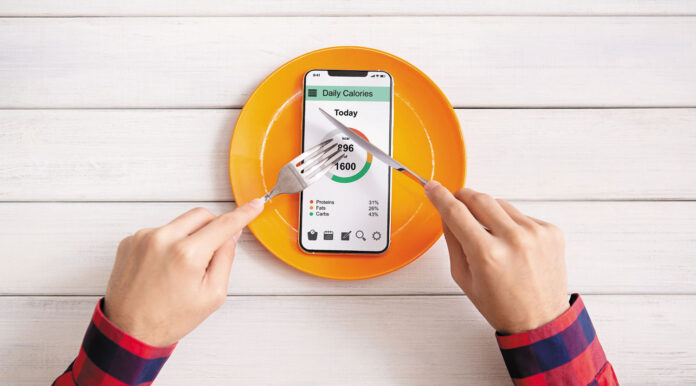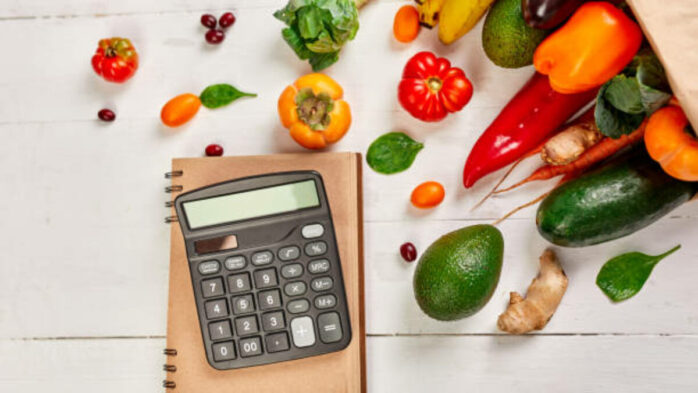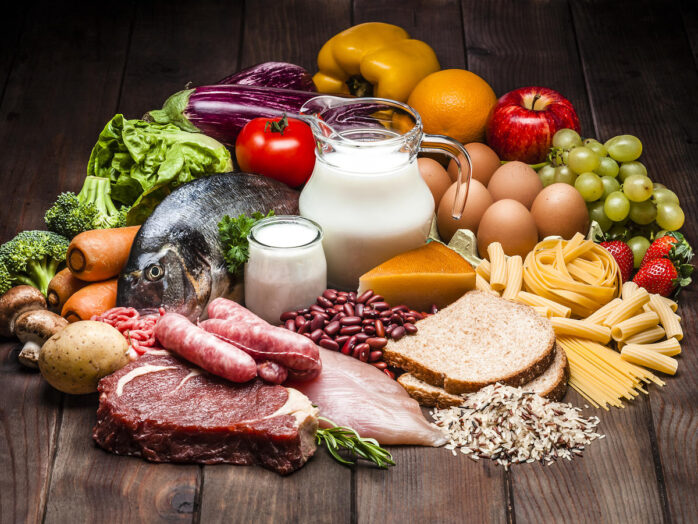
The amount of energy in food is measured in calories, a unit of energy. Our bodies need the calories we eat and drink to power daily activities and support growth and development.
A person’s daily calorie requirements might change depending on a number of variables, including age, gender, weight, height, amount of exercise, and metabolism. The typical adult need between 2000 and 2500 calories per day to maintain their weight. Yet, depending on the person, this can change greatly.
Carbohydrates, proteins, and fats are the three primary macronutrients that can provide calories in the diet. In comparison to lipids, which have 9 calories per gram, carbohydrates and proteins have 4 calories per gram. It’s crucial to maintain a balance between all
How to calculate calories?

To calculate the number of calories in a food item, you need to know the amount of macronutrients (carbohydrates, protein, and fat) it contains. Here are the basic steps to calculate the calories in a food item:
- Determine the grams of carbohydrates, protein, and fat in the food item. You can find this information on the nutrition label or through a nutrition database.
- Multiply the grams of carbohydrates by 4, the grams of protein by 4, and the grams of fat by 9. These numbers represent the number of calories per gram for each macronutrient.
- Add up the number of calories from carbohydrates, protein, and fat to get the total number of calories in the food item.
For example, let’s say you have a food item that contains 30 grams of carbohydrates, 10 grams of protein, and 5 grams of fat. To calculate the number of calories, you would do the following:
30 grams of carbohydrates x 4 calories per gram = 120 calories 10 grams of protein x 4 calories per gram = 40 calories 5 grams of fat x 9 calories per gram = 45 calories
Total calories = 120 + 40 + 45 = 205 calories
So the food item contains 205 calories.
Using a Food calorie calculator

A food calorie calculator can be used to help you estimate the number of calories you are consuming in a day. By entering information about the foods you eat and their serving sizes, the calculator can provide an approximate total calorie count for your meals.
Some benefits of using a food calorie calculator include:
- Increased awareness of your food choices: Using a food calorie calculator can help you become more mindful of the foods you are eating and their nutritional value. This can help you make better choices about what to eat and how much.
- Monitoring calorie intake: If you are trying to lose weight or maintain a healthy weight, tracking your daily calorie intake can be helpful. A food calorie calculator can help you stay on track and adjust your diet as needed.
- Meal planning: Using a food calorie calculator can help you plan meals in advance and ensure that you are meeting your daily nutritional needs.
- Adjusting portion sizes: A food calorie calculator can help you see the calorie content of different foods and adjust your portion sizes accordingly. This can help you control your calorie intake and maintain a healthy weight.
Overall, a food calorie calculator can be a useful tool for anyone looking to improve their diet and maintain a healthy weight. However, it’s important to note that calorie calculators provide estimates and should not be relied on as the sole method of tracking your diet.
FAQs

Why is it important to monitor your calories?
Monitoring your calorie intake is important for several reasons:
- Weight management: Calories are a measure of energy, and consuming more calories than your body needs can lead to weight gain. Conversely, consuming fewer calories than your body needs can lead to weight loss. By monitoring your calorie intake, you can better manage your weight and make adjustments to your diet as needed.
- Nutritional balance: Monitoring your calorie intake can help ensure that you are getting the right balance of macronutrients (carbohydrates, protein, and fat) and micronutrients (vitamins and minerals) that your body needs. A balanced diet that includes a variety of foods can help you meet your nutritional needs.
- Awareness of portion sizes: Monitoring your calorie intake can help you become more aware of portion sizes and how much food you are consuming. This can help you avoid overeating and make healthier choices about what to eat.
- Disease prevention: Eating a balanced diet and managing your weight can help prevent chronic diseases such as heart disease, diabetes, and certain types of cancer. Monitoring your calorie intake can be a part of an overall healthy lifestyle.
How to calculate food calories online?
There are many apps available, one such example is the food calorie calculator by Livofy
- Make an account and fill it out with your details, including your age, gender, height, weight, and degree of activity. Your daily calorie requirements will be determined using this information.
- For help locating the meal you wish to track, use the search option.
- Once you’ve located the dish, choose the portion that you ate. The app will then show the serving size’s calorie count.
- You can enter the components and their proportions into the app to determine the calorie content if you’re keeping track of a recipe or a home-cooked meal.





